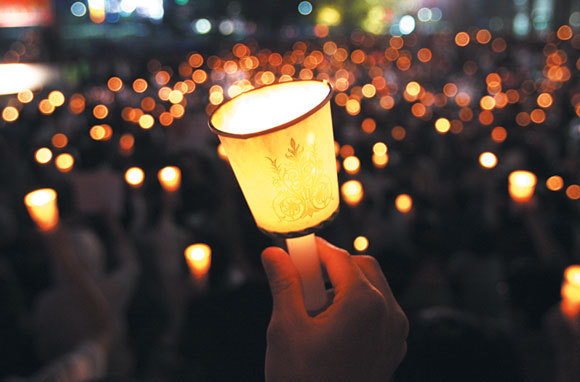The people of Korea are well known for their love of literature. Throughout the country’s 5,000-year history, the Korean people have written, read and recited brilliant poems and stories. Even today, literature enjoys a level of critical and commercial success in Korea not easy to match in this modern, digital world
A relatively small country, Korea has maintained a notable degree of national independence for most of its history, while developing its own unique culture through creative cultural interaction with neighboring countries. Following a long era of relative peace, the country has gone through an extended period of difficulties beginning from the early years of the 20th century, including colonization, war, the division of the nation, and dictatorship. Emerging from these upheavals and hardships, the Korean people have worked vigorously and have been successful in building a vibrant modern country.
 Today, South Korea has the 11th-largest economy in the world, with a per capita GDP of about $30,000. In addition, the country’s popular culture, including pop music, TV dramas and films, enjoys global popularity, reaching every corner of the world, a phenomenon often dubbed the “Korean Wave.” At the same time, however, despite this global popularity of Korean culture, Korean literature remains largely unknown. There are reasons for this. First and foremost, translating Korean literature into foreign languages is a time-consuming and difficult process. In addition, on-going ideological confrontations within the Korean peninsula have imposed additional barriers to an impartial and comprehensive introduction of Korean literature to the world. Works marginalized by either or both ends of the ideological and political spectrum are often not given the national or international attention they deserve.
Today, South Korea has the 11th-largest economy in the world, with a per capita GDP of about $30,000. In addition, the country’s popular culture, including pop music, TV dramas and films, enjoys global popularity, reaching every corner of the world, a phenomenon often dubbed the “Korean Wave.” At the same time, however, despite this global popularity of Korean culture, Korean literature remains largely unknown. There are reasons for this. First and foremost, translating Korean literature into foreign languages is a time-consuming and difficult process. In addition, on-going ideological confrontations within the Korean peninsula have imposed additional barriers to an impartial and comprehensive introduction of Korean literature to the world. Works marginalized by either or both ends of the ideological and political spectrum are often not given the national or international attention they deserve.
Literature-loving Koreans and Korean-Americans in the Greater Boston Area and beyond have joined together to create this space to share the treasure trove that is Korean literature with the rest of the world. Our goal is to serve as cultural intermediaries and purveyers of literature, sharing modern and traditional Korean literature with the English-speaking world, regardless of its political or ideological orientation. We have decided to begin by introducing Korean poetry, and hope to later expand our work to other genres, such as short stories, essays, and plays. This website will also be a space where we can introduce Korean-American poets to the public and give them the opportunity to converse with poets in Korea.
 An introduction to Modern Korean Poetry
An introduction to Modern Korean Poetry
Modern Korean poetry is not been widely available in translation. We are pleased to take this opportunity to introduce the work of Korean poets to a wider audience. We will select authors without regard for their political or ideological orientation or background. Three sets of criteria will be use to select works to be published:
- For poems that have been published by authors who are still living, a selection committee will choose works from poetry books and obtain permission from the authors to publish them on the site, following which a translation committee will translate them into English.
- For poems that authors submit to us which are already in translated form, the selection and editorial committees will review them and we will publish those works that the committee selects.
- For poems by authors who have passed away less than 70 years ago, we will obtain permission from their families. The selection committee will then determine which works will be included and a translation committee will translate them.
- The copyright of the translated literature by koreanlit.com’s translator belongs to koreanlit.com.
The Korean Cultural Service of Massachusetts is taking the lead on this project. Established in 2013 for the purpose of introducing Korean culture in the United States, the service maintains a Korean library, lending Korean books to institutions across the United States, and also conducts weekly Korean language classes.







